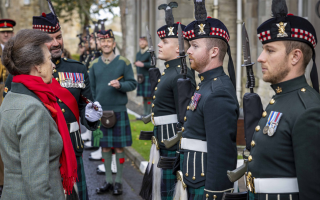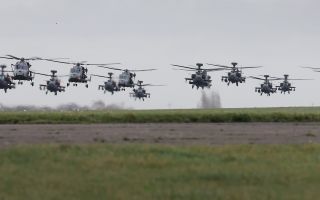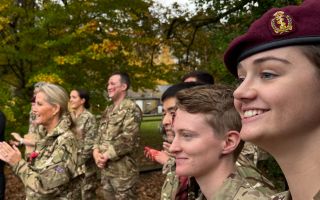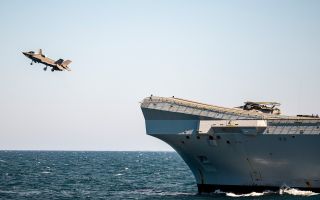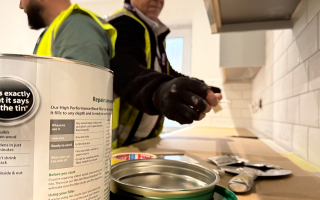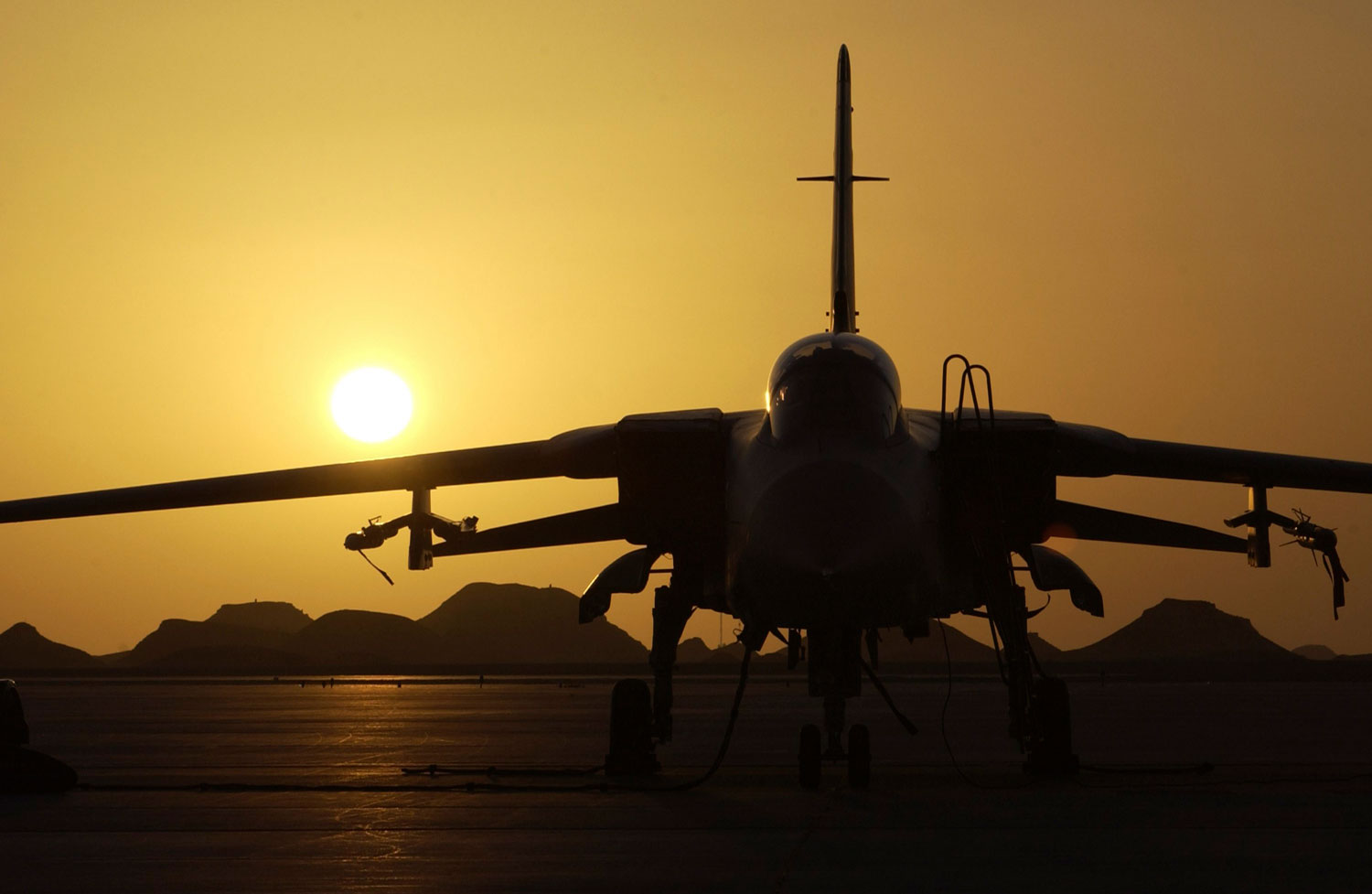
Tri-Service
"British Ships And Planes Could Fight Daesh In Libya"

British warplanes and battleships could be deployed to counter Daesh in Libya but frontline fighting is not expected for UK troops, Philip Hammond has said.
The Foreign Secretary said it is "quite possible" the fledgling government of national accord (GNA) would request air and naval support to combat the group, as it will not be able to develop its own forces of this nature. He added:
"We do not anticipate any requests from the GNA for ground combat forces to take on Daesh or any other armed groups and we have no plans to deploy troops in such a role."
"I will of course keep the House informed of any plans we develop in the future in response to requests from the Libyan government."
Mr Hammond added that no request or talks on any military deployment have taken place but he said the UK would consider the idea if it is proposed and indicated MPs would be allowed a vote.
It comes after reports last week that UK plans to send 1,000 British troops to Libya had been thrown into turmoil after the country's new government said it does not want help from foreign militaries.
The government denied last month, meanwhile, that plans were already in place to send troops to Libya to help in the fight against Daesh.
Mr Hammond's refusal to rule out air and naval operations in the region came after he insisted there is "no appetite" in Libya for foreign combat troops on the ground.
But he said the UK is willing to send troops to help train and support the GNA's forces, adding:
"The type of mission that we currently envisage would be focused on providing training and technical support away from any frontline operations."
Labour MP Mike Gapes (Ilford South) later told Mr Hammond:
"You said that there's no appetite in Libya for foreign combat troops on the ground. Is there any appetite in the Libyan political system for foreign air forces or foreign naval forces operating in Libyan territorial waters?"
Mr Hammond replied: "I think we've seen on the latter point already a clear wariness of any suggestion of foreign naval forces operating in Libyan territorial waters even if the focus is counter-migration rather than counter-Daesh.
"I can't rule out, and it would be wrong to rule out, any future request for air or naval support to a counter-Daesh operation."
"I can envisage prime minister (Fayez) Sarraj, if his government is successful, being able to muster enough ground forces to mount an attack on the Daesh stronghold around Sirte.
"Sirte is a coastal port, of course, and it's certainly the case that the Libyans will not be able to develop either naval or air assets in any reasonable period of time to support such an operation.
"Indeed, it is quite possible that from a military point of view they would seek assistance from outside.
"Now, prime minister Sarraj would have to balance that military imperative with the political issues that would arise if he were to request foreign assistance.
"There has been no such request, no discussion of such a request, but if it comes we will consider it and if we think that the UK should participate in such action we will come to the House and allow the House to express an opinion through a vote."
Mr Hammond made a statement to the House of Commons after visiting the troubled North African state in a show of support for prime minister-designate Sarraj's administration on Monday.
He said he understood concerns that the lines between what is a combat mission and what is a training mission "could be blurred", adding: "But we are very clear that we can make that distinction."
Mr Hammond said there was a "big difference" between training and advising troops and getting engaged in combat activities, adding:
"The government is extremely mindful of that distinction and of the obligations it's entered into in respect of consulting the House."
Responding to questions from backbenchers, Mr Hammond said he envisaged any training force to be between "tens and hundreds of trainers" rather than thousands.
Any mission is unlikely to focus on "hard" training of infantry troops initially but instead on military command structures through a civilian-led defence ministry - advice that could be given from Whitehall, he said.
The Foreign Secretary also indicated that police and ex-military contractors could carry out some or even all of the training rather than serving forces personnel.
"There's been a kind of assumption across the House that any training we give would have to be given by UK military personnel," Mr Hammond said.
"Some of the training that's needed will be police training...
"It's also quite possible that some of the training, perhaps all of the training, will be delivered by contractors, often ex-military personnel working for contractors rather than current serving military personnel."
Mr Hammond stressed that the only way of stabilising Libya is to co-opt the different militias which sprung up after the fall of Muammar Gaddafi in 2011.
He insisted that many of those armed groups are not extremists but instead local defence forces who were protecting the local population.
The Foreign Secretary said: "It's not possible to talk about raising a new Libyan armed forces that will then take on all these militias, that would be a completely unrealistic project.
"The only way forward is to co-opt militias into a nascent Libyan armed forces backed by a political system which is highly devolved and assures them of the autonomy and the fair shares of Libya's wealth for the communities that they are seeking to back."

